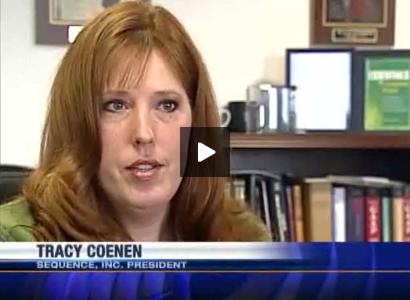 Koss Corporation (NASDAQ:KOSS) filed a 10-Q with the Securities and Exchange Commission yesterday that pointed out the obvious… Now that their VP of Finance isn’t stealing at least $31 million from them, they think they’ll be more profitable.
Koss Corporation (NASDAQ:KOSS) filed a 10-Q with the Securities and Exchange Commission yesterday that pointed out the obvious… Now that their VP of Finance isn’t stealing at least $31 million from them, they think they’ll be more profitable.
The company says they’ll be restating the financial statements for the fiscal years ended June 2008 and June 2009, at the very least, and also restate the quarterly reports filed so far for fiscal 2010. The company says their numbers will improve now that Sue Sachdeva isn’t stealing from them (bold added by me):
As previously reported, the Company announced that preliminary estimates of the Independent Investigation indicated that the amount of unauthorized transactions since fiscal year 2005 exceeded $31 million. The Company’s results of operations have been affected during these years by the unauthorized transactions. Although the Independent Investigation is not complete, it appears that approximately $5.0 million in unauthorized transactions occurred in the quarter ended December 31, 2009. This $5.0 million amount is included in the total estimated amount of over $31 million of unauthorized transactions that occurred since fiscal year 2005. Notwithstanding the disruption resulting from the discovery of the unauthorized transactions, the Company is operating in the normal course of business and expects the absence of such unauthorized transactions to improve its future results of operations.
Koss also wants us to believe it had good controls in place while this fraud occurred over almost 6 years:
The Company maintains a system of disclosure controls and procedures that were designed to and believed to provide reasonable assurance that information, which is required to be timely disclosed, is accumulated and communicated to management in a timely fashion. A control system, no matter how well conceived and operated, can provide only reasonable, not absolute, assurance that the objectives of the control system are met. It is possible for even the best control system to be circumvented by those with the intent, knowledge and opportunity to do so.
It is unclear whether the company’s new auditors, Baker Tilly Virchow Krause have signed off on this 10-Q, although a review by the auditors is required prior to a 10-Q being filed with the SEC:
The Securities and Exchange Commission is adopting new rules and amendments to its current rules to require that companies’ independent auditors review the companies’ financial information prior to the companies filing their Quarterly Reports on Form 10-Q or Form 10-QSB with the Commission…
Frankly, I think it would be irresponsible for Baker Tilly to sign off on a filing that included the above language about the controls in place while Sachdeva was committing her fraud. Are we really expected to believe that the controls in place were good? Can Baker Tilly possibly believe such a thing? Have they done any sort of analysis of the previous controls to give them any reason to think the controls were “…designed and believed to provide reasonable assurance” about the accuracy of the numbers?
I wouldn’t touch that assertion with a ten foot pole, and Baker Tilly shouldn’t either.




[…] at least $31 million from them in a fraud scheme that lasted over five years. And amazingly, the executives don’t seem to have plans to change much in wake of the fraud, as they stated in their most recent 10-Q (bold added by me): Although […]
I agree whole heartedly with your controls comment. Controls can provide reasonable assurance, but they must be monitored for maximum effectiveness. Even with monitoring, no control is fool proof.
I have a control on my front door, a lock. Its obvious presence implies security, whether or not it is actually locked. For maximum effect, I must check to make sure the lock is actually engaged. However, a very determined burglar can still break down the door.